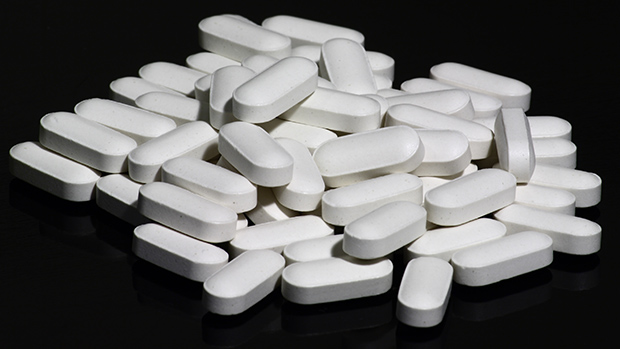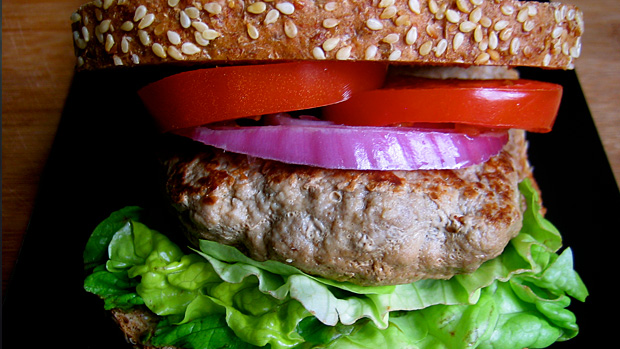Have you ever wanted to be recognized as an authority on bodybuilding, powerlifting, and performance enhancement? Do you want to be the "Go-To" guy when people want to know how to get big and strong? Ever imagined having the prestige of being a "local guru"? You probably wouldn't be here if these things didn't apply to you, so read on and see how you can make this a reality!
Trudging through the garbage on the various bodybuilding newsgroups, one quickly becomes aware of who the local (and I use the term loosely) "Guru's" are. These are the guys who post a lot of messages and seem to put their 2 cents into every discussion. Their opinions are respected and often thought of as sacred to the newer members...but are these reputations really deserved?
Sure, they may claim to be 250lbs at 5%BF or profess to bench 600lbs, but does that really mean they know what they're talking about when it comes to you? HELL NO! In my experience you very rarely find someone like Dave Tate (i.e. a big super strong mo'fo' who really knows his shit), and the message board big guys still have a lot to learn before they start doling out advice that's considered dogma.
So where do you turn to for advice? Well, why not turn to yourself? The fact that you're reading T-Mag says you're already more knowledgeable than 90% of guys out there, but why not take that one step further, WHY DON'T YOU BE THE GURU?
You've already taken the first step by just being here at T-mag, so take the plunge and beat those "know-nothing guru's" at their own game!
Easier Than it Sounds
While nothing beats practical experience (which you already have, otherwise you wouldn't be here), most guys who talk a big game lack one simple tool: Hard Evidence. Have you ever argued with someone about training or supplementation? Of course, we all have! Sadly, the winner of these "discussions" usually ends up being the guy who has the biggest bench–which is hardly a reasonable outcome.
I have to tell you that nothing shuts up a meathead like pulling a scientific reference out of your back pocket (believe me, I was on the losing end in my early days). Not only that, but it makes you look like a genius while demonstrating that you put some time into researching the topic. This works well enough for average sized guys, but for those of you who have a little muscle on your frame, your arguments can be even more convincing! All it takes is a little knowledge about the scientific literature on that topic and you're set for your new "local guru" title.
Science Made Simple
Of course you don't have hours to waste going through PubMed and even if you did, you may not understand what you read. That's where this article comes in. We'll concisely cover the most important study on a specific topic (for example this installment is on bodybuilding supplements). You'll simply learn the basic facts concerning each (just like you do with every other article). The best part is that you'll not only learn a lot for yourself, you'll also save cash that would otherwise be wasted on worthless supplements!
Destroying the Dogma
Before we get to the studies, I have to emphasize that these studies should be taken as evidence, not proof. They should be used merely as a tool rather than regarded as dogma. Remember, even HMB had studies supporting its use. Furthermore, researchers might have used an inferior source of a particular substance, or used it in amounts too small to be effective.
Still, studies are still important because the only thing that most people have to go on is what others say about their own experience (which is hardly reliable). Case in point; I know of a half dozen people who swore to me that Smilax and Ginseng were great for putting on mass–no kidding.
If you ever hear someone say anything as ridiculous as that, don't bother referencing a study, just laugh and walk away!
Supplement Study 1: Conjugated Linoleic Acid (CLA)
Background Information: Although the theory of consuming CLA came into popularity nearly a decade ago, this supplement is still kicking around. Originally, only animal data existed and all theories were formulated from these animal studies. Fortunately, many years later we have several human studies performed on CLA (the most important of which is below) so we can make an informed decision.
What You Need to Know
- Who, when, where published:
- Kreider et al, 2002, Journal of Strength and Conditioning Research
- Study Setup Basics:
- 2 groups, TRAINED subjects
- Group 1 took olive oil placebo
- Group 2 took CLA at 6 grams a day for 4 weeks
- Results:
- No change in muscle mass, fat mass, or strength after 4 weeks of supplementation and resistance training
That's all!
See how easy it is? 5 little points and you know the basics of a peer reviewed scientific study!
My Comments: It may be important that subjects are trained (meaning that they had prior experience with weights) when used in a study, because some adaptations happen very quickly in untrained people, regardless of what they take or do! While you don't need to know the details, a full review of the literature is coming out soon and it indicates that while CLA is great in livestock, it really doesn't do much in healthy humans. In fact, some versions of CLA may actually be harmful to your health (Larsen et al., 2003).
For more info, check out the great T-Mag article on CLA by Dr. Lowery.
Supplement Study 2: Glutamine
Background Information: Glutamine started out much like CLA in that there were several studies showing that it worked on cells in a Petri dish, and all the theories were based on those studies. Again, it's fortunate that we're now beginning to see training studies involving glutamine to determine what it will do for us as a bodybuilding supplement.
What You Need to Know
- Who, when, where published:
- Candow et al, 2001, European Journal of Applied Physiology
- Study Setup Basics:
- 2 groups, TRAINED subjects
- Group 1 took maltodextrin placebo
- Group 2 took glutamine at ~45 grams a day for 6 weeks
- Results:
- No change in muscle mass, fat mass, or strength after 6 weeks of supplementation
My Comments: Not to beat a dead horse, but if you haven't already heard about the glutamine fiasco, you should probably check out the following T-Mag articles, by some punk named Dave Barr and another punk named John Berardi. While you don't need to memorize the specifics, you should know that yet another article has come out demonstrating the uselessness of glutamine for muscle growth/strength in trained athletes (Lehmkuhl et al., 2003).
Supplement Study 3: Nitric Oxide/Blood Flow Enhancers
Background Information: Nitric oxide enhancing supplements are relatively common these days, having ridden on the coattails of an aggressive marketing campaign. The supplements contain the amino acid arginine and are supposed to increase levels of a naturally occurring substance called nitric oxide (which is responsible for smooth muscle relaxation). The theory is that by increasing nitric oxide, you elevate blood flow and nutrient delivery to muscles. This could result in increased muscle hypertrophy or strength.
What You Need to Know
- Who, when, where published:
- Robinson et al, 2003, Medicine and Science in Sports and Exercise
- Study Setup Basics:
- Untrained subjects tested before and after resistance exercise
- 10g arginine + 70g simple carbs (the basic ingredients in all nitric oxide supplements) OR 10g glycine + 70g carbs (placebo) supplemented post workout
- Results:
- NO changes in blood flow, blood pressure, insulin, or carbohydrate uptake compared to placebo
My Comments: It stands to reason that without elevated blood flow or insulin that you wouldn't have increased nutrient delivery to muscles. It seems as though the theory behind these supplements has crumbled. Being the only published study on arginine supplementation and resistance exercise, I'd say that the days of this supplement for bodybuilding are numbered.
And on a positive note...
Supplement Study 4: Pre/Post-Workout Meals
Background Information: While it's commonly accepted that post workout meals improve recovery from workouts (via enhanced protein and glycogen synthesis), the timing of these meals may be more critical than previously imagined. Even if you already use this technique, you should definitely be aware of the research supporting it.
What You Need to Know
- Who, when, where published:
- Tipton et al, 2001, American Journal of Physiology
- Study Setup Basics:
- 1 Group of weight-trained subjects underwent 2 different training sessions
- Session A ingested drink before weights
- Session B ingested drink after weights
- Drink contained 6g essential amino acids and 35g sucrose
- Results:
- Both conditions resulted in elevated protein synthesis after exercise, but consuming the drink before weights resulted in levels 2.5X higher than when the drink was consumed after training
My Comments: Not every article of importance is related to something controversial. It's also imperative to remember that this study was performed on fasted subjects, so a pre-workout meal consumed only an hour after a regular meal is a waste. I may be biased because I work in the lab that produced this info, but landmark studies like this one need to be understood by everyone who works out.
That's it, some of the most important supplement studies to date. In many cases, the studies presented are the only resistance training studies using that supplement in existence–period! I must reiterate that these studies, as good as they are, are to be used only as supporting evidence when making your point, so don't be afraid to learn more about them.
Get to know these studies, and you'll be armed and ready the next time that Johnny Bignutz (the local big guy) tells you that he and his "cuzin Bubba" gained 25lbs using only CLA, glutamine, and nitric oxide enhancers. Then get ready for your new "Guru" status!
For more information on these references, type the article title into www.PubMed.com
References:
- Kreider RB et al. Effects of conjugated linoleic acid supplementation during resistance training on body composition, bone density, strength, and selected hematological markers. J Strength Cond Res. 2002 Aug;16(3):325-34.
- Candow DG et al. Effect of glutamine supplementation combined with resistance training in young adults. Eur J Appl Physiol. 2001 Dec;86(2):142-9
- Robinson TM et al. L-arginine ingestion after rest and exercise: effects on glucose disposal. Med Sci Sports Exerc. 2003 Aug;35(8):1309-15.
- Tipton KD et al. Timing of amino acid-carbohydrate ingestion alters anabolic response of muscle to resistance exercise. Am J Physiol Endocrinol Metab. 2001 Aug;281(2):E197-206.
Special thanks to Chris Shugart and my manager David Lounsbury.





